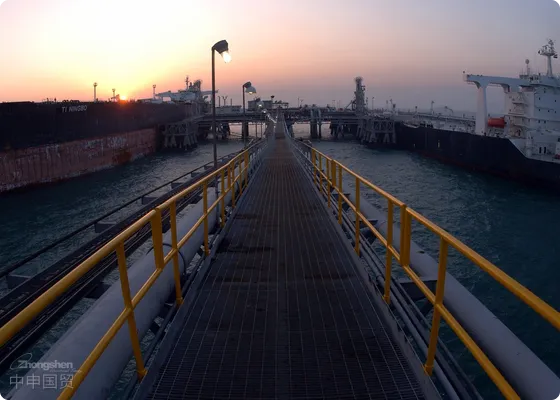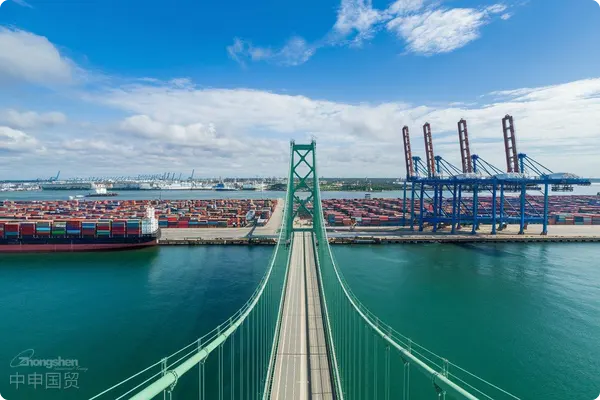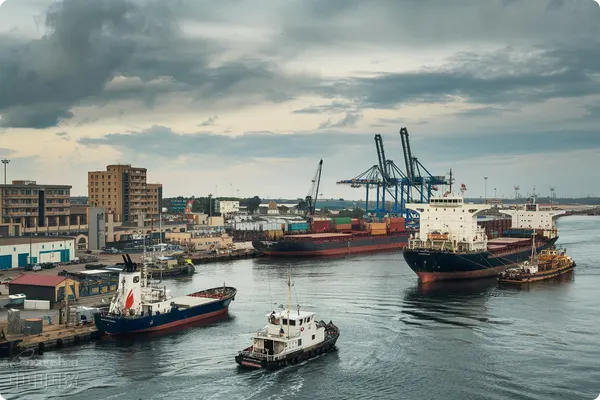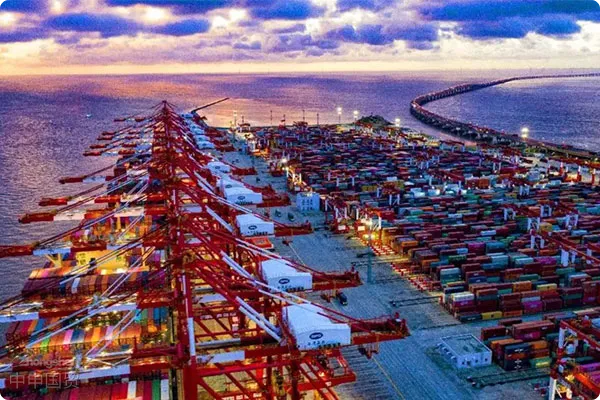- Shanghai Zhongshen International Trade Co., Ltd. - Two decades of trade agency expertise.
- Service Hotline: 139 1787 2118
Introduction
With the continuous deepening of trade cooperation between China and Egypt, the potential of the Egyptian market has attracted more and more enterprises. However, exporting to Egypt is not smooth sailing. Complex customs procedures, changing payment policies, and strict trade barriers have troubled many enterprises. So, how can we seize the opportunities in the Egyptian market while coping with these challenges? This issue of the guide will provide you with a detailed interpretation of coping strategies to help you navigate the Egyptian market with ease.
Questions that many exporters care about:
- Is it troublesome to clear customs for exports to Egypt?
- I heard that there is a high possibility of goods abandonment in Egypt. Is it true?
- The payment methods and customs policies in Egypt are constantly changing. What should be noted?
(I) Complex customs procedures
In recent years, although the trade relations between China and Egypt have experienced some twists and turns, they have generally maintained a growth momentum.
- Trade data:
- In 2022, the bilateral trade volume between China and Egyptwas 18.19 billion US dollars, among which Chinas exports to Egyptwere 17.17 billion US dollars.
- From January to July 2024, the bilateral goodsimport and exportvolume was592 billion US dollars, with a year - on - year increase of. The total value of Chinas exports to Egypt4.7%was 9.199 billion US dollarsMarket opportunities, with a year - on - year increase of. The total value of Chinas exports to Egypt7.8%.
- Fields:
- New energy: Chinese - made wind power equipment has been successfully exported to Egypt for the largest wind power project on the African continent - the 500 - megawatt Gulf of Suez Wind Power Project, contributing to Egypts clean energy transformation.Electronic products
- : Chinese mobile phone brands such as Huawei, Lenovo, and OPPO have a high market share in the Egyptian market.Other fields
- : Egypt is rich in resources in aspects such as agricultural products, textiles, and tourism, providing broad cooperation space for Chinese enterprises.Exporters need to register on the CargoX platform (

(II) Strict trade regulations
(III) Impact of trade barriers
- CargoX platform registration is cumbersome:
- ). The process includes account creation, recharge, verification, and file uploading, etc., which is relatively complex.https://cargox.digital/Cost
- : A single operation costs about165 US dollars, and it is recommended to recharge180 US dollarsfor the first time because 15 US dollars will be deducted in the verification process.Time: Recharging and verification generally take.
- 2 - 3 days, which need to be arranged in advance.The ACI declaration system has strict requirementsSince October 2021, Egypt has compulsorily implemented the
- Advanced Cargo Information Declaration (ACID):
- system.: A 19 - digit number that must appear on all relevant documents (invoice, bill of lading, manifest, etc.).Risk
- ACID number: Goods without an ACID number will be forced to be returned and fined.
- Changes in payment methods(LC) payment

III. Coping strategies and suggestions
- : Since March 2022, Egyptian importers can only import goods by letter of credit.:
- L/CChallenges: The letter of credit increases additional costs such as handling fees and discrepancies, and the creditworthiness of the issuing bank needs to be verified.
- Challenges: Letters of credit increase additional costs such as handling fees and discrepancies, and the creditworthiness of the issuing bank needs to be verified.
- Electronic Declaration of Value-Added Tax (VAT):
- The Egyptian government has made the electronic declaration of VAT mandatory. Domestic merchants must fill out electronic documents online, which increases operating costs.
- Frequent Adjustments of Tariffs:
- The Egyptian government has adjusted tariffs several times, covering thousands of commodities with tax rates ranging from **5% to 40%**.
- Impact: It increases the cost of export products and adds market uncertainties.
(I) Understand the regulations in advance
- Technical Barriers to Trade:
- Technical Regulations: The Egyptian government restricts imported products by issuing orders, laws, and guidelines. For example, all imported products are required to indicate detailed information in Arabic on the packaging.
- Technical Standards: High - standard products and inspection methods are adopted. For imported goods that do not meet the standards, fines or returns may be imposed.
- Complex Conformity Assessment Procedures: Multiple departments are involved. Imported goods need to go through strict pre - shipment inspection and certification.
(II) Reserve sufficient time
(III) Control the safety of payment for goods
- Be Familiar with Customs Procedures and Trade Regulations:
- In - depth Research: Understand the specific operation procedures of the CargoX platform and the ACI declaration system.
- Pay Attention to Policy Changes: Closely monitor the latest policies of the Egyptian government regarding payment methods, VAT declaration, tariffs, etc.
- Clarify Transaction Details:
- Contract Agreement: Before signing the contract, clarify with the customer the payment method, cost, and liability division to avoid disputes in the later stage.
(IV) Select suitable customers and partners
- Time Planning:
- Arrange in Advance: Considering the complexity of customs procedures, reserve sufficient time for goods production, inspection, declaration, and transportation.
- Avoid Delays: Handle necessary procedures such as pre - shipment inspection in advance to avoid customs clearance problems caused by tight schedules.
(V) Strengthen communication and cooperation
- Review the Reputation of the Issuing Bank:
- Information Acquisition: Request the customer for detailed information about the issuing bank, including the bank name and SWIFT code.
- Reputation Investigation: Inquire about the reputation of the issuing bank through your own bank or credit insurance institution.
- Carefully Review the Terms of the Letter of Credit:
- Clause Verification: Review the letter of credit item by item and communicate with the customer in a timely manner to modify unfavorable or unfulfillable clauses.
- Track the Transfer of Documents: Ensure that documents are submitted within the time specified in the letter of credit to avoid risks caused by late submission.
- Selection of Payment Methods:
- Telegraphic Transfer (T/T) Method: If T/T is adopted, promptly urge payment after the bill of lading is issued, and try to get the payment cleared before the goods arrive.
With the continuous deepening of trade cooperation between China and Egypt, the potential of the Egyptian market has attracted more and more enterprises. However, exporting to Egypt is not smooth sailing. Complex customs procedures, changing payment policies and strict trade barriers have troubled many enterprises. So, how can we seize the opportunities in the Egyptian market while coping with these challenges? This issue of the guide will provide you with a detailed interpretation of coping strategies to help you navigate the Egyptian market with ease.
- Choose Customers with Strong Customs Clearance Ability: Cooperate with Egyptian customers who have rich customs clearance experience and good reputation to reduce the risks of goods backlogs and abandoned goods.
- Cooperate with Professional Agent Institutions: When dealing with customs registration and declaration procedures, seek the help of professional agent institutions to improve customs clearance efficiency.
(V) Strengthen communication and cooperation
Maintain Close Contact with Customers: Keep informed of customer needs and policy changes in a timely manner and jointly solve problems.
Industry Communication: Share experiences and information with peer enterprises to jointly address challenges.
Pay Attention to Policy Support: Keep in touch with relevant government departments and industry associations to obtain policy support and risk warnings.
The Egyptian market is full of opportunities but also accompanied by various challenges. By understanding policies in advance, optimizing processes, and choosing suitable partners, you can effectively reduce risks and achieve market expansion. If you wish to have an in - depth understanding of the detailed process of exporting to Egypt or need professional support, please feel free to contact us.ZhongShen International TradeWe will provide you with a one - stop solution to help your business succeed in the Egyptian market!
Related Recommendations
Learn
Contact Us
Email: service@sh-zhongshen.com
Related Recommendations
Contact via WeChat

? 2025. All Rights Reserved. Shanghai ICP No. 2023007705-2  PSB Record: Shanghai No.31011502009912
PSB Record: Shanghai No.31011502009912








